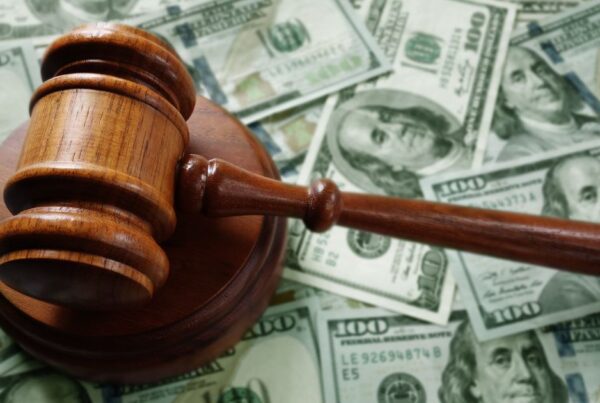 Distressed properties can be an opportunity for real estate investors, but they can also come with unexpected baggage. One of the most common complications? Liens.
Distressed properties can be an opportunity for real estate investors, but they can also come with unexpected baggage. One of the most common complications? Liens.
Whether you’re a seasoned investor or buying your first distressed asset, it’s important to understand what a lien is, how it can affect your deal, and what legal options you have. At Ayala Law, we regularly help investors in Florida navigate lien issues tied to distressed or foreclosed properties. Here’s what you need to know, and how to protect your investment.
What Is a Lien on a Property?
A lien is a legal claim or encumbrance against a property due to an unpaid debt. In simple terms, it’s a way for a creditor to secure repayment. If the debt isn’t paid, the lien gives that party the right to force a sale of the property to collect.
Liens come in several forms, including:
- Mortgage liens
- Tax liens
- HOA liens
- Mechanic’s liens (for unpaid work or materials)
- Judgment liens (from lawsuits or unpaid judgments)
If you’re an investor investing in distressed real estate, chances are the property has at least one of these attached to it, and possibly more.
How Do I Know If a Property Has Liens?
Here are ways to search for property liens in florida:
- County Clerk’s Office: Most counties have online databases where you can search property records using the address or owner’s name.
- Title Search: A title company or real estate attorney can run a full title search that reveals all liens recorded on the property.
- Public Records Requests: Some liens, especially code enforcement or utility liens, may not show up through typical searches and require direct requests from the local government.
A title search is essential before making any purchase, especially when buying foreclosures or distressed properties at auction.
Can You Buy a Property With a Lien on It?
Yes, but with caution. Buying a property with a lien means you may become responsible for resolving that lien, even if it was attached before you took ownership.
What Happens if You Buy a Property With a Lien?
- The lien may survive the sale, especially in private sales or auctions.
- You could be on the hook for payment to clear the title.
- It may affect your ability to get financing or resell the property later.
This is why many investors consult real estate attorneys before closing on a distressed property, especially if they plan to flip or rent the asset quickly.
How to Legally Handle Liens on Distressed Properties
If you’re an investor facing liens on a property you own or are about to purchase, here are your main legal options:
1. Negotiate a Settlement
Often, lienholders are willing to accept partial payment to release the lien, especially if the debtor is long gone or judgment-proof. We’ve helped investors negotiate significant reductions in lien amounts through formal settlement agreements.
2. File a Quiet Title Action
If there’s a lien that you believe is invalid or improperly recorded, you may be able to file a quiet title lawsuit. This court action seeks to “clear” the title and remove any competing claims, including questionable liens.
3. Pay the Lien at Closing
In some cases, you may choose to pay off the lien through your closing statement to ensure clear title going forward. This is common in short sales or purchases where the discount justifies the extra cost.
4. Challenge the Lien’s Validity
Certain liens, especially mechanic’s liens or HOA liens, must follow strict procedures under Florida law. If the proper steps weren’t followed, you may be able to invalidate the lien entirely.
Are Tax Liens or HOA Liens in Florida Harder to Remove?
Not all liens are created equal, some carry more risk or have stronger enforcement powers.
Florida Tax Liens
- Issued by local tax collectors when property taxes go unpaid
- Often auctioned off to third-party investors (tax lien certificates)
- Survive foreclosure sales unless properly addressed
- Usually must be paid in full for the property to transfer cleanly
Florida HOA Liens
- Can be recorded for unpaid dues, fees, or fines
- In Florida, HOAs can foreclose on properties for unpaid assessments
- May be limited by the Safe Harbor provision (reducing what buyers owe in some foreclosure scenarios)
Every type of lien needs its own legal strategy, what works for a judgment lien may not work for a tax lien.
Should You Buy a Distressed Property With a Lien?
It depends. Liens are not a deal-breaker, but they are a legal risk. They can cut into your profits, create title issues, or even prevent you from selling later.
Ask yourself:
- Can I get a clear understanding of what liens are on the property?
- Can I negotiate them down or get them resolved at closing?
- Do I have legal counsel to help if things go wrong?
Smart investors treat lien issues as part of their due diligence, not as an afterthought.
How We Help Real Estate Investors Handle Liens
At Ayala Law, our attorneys work with real estate investors across Florida to help them:
- Conduct pre-purchase lien analysis
- Negotiate lien reductions or releases
- Challenge improperly filed liens
- Clear title through quiet title actions
- Navigate HOA and tax lien complications
Whether you’re purchasing your first distressed property or adding to a growing portfolio as an investor, we help you understand the risks, plan strategically, and protect your investment.
If you’re an investor investing in distressed real estate in Florida, contact an experienced attorney in Miami at 305-570-2208.
You can also contact attorney Eduardo A. Maura at eduardo@ayalalawpa.com.
Schedule a case evaluation online here.
Subscribe to Our Blog
Stay informed with our latest blog posts delivered directly to your inbox. Gain valuable legal insights, tips, and advice from our seasoned attorneys.







